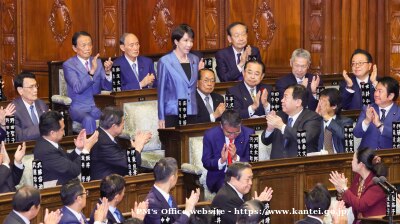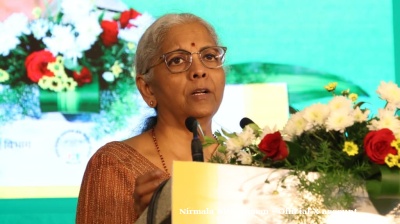Japan's new Prime Minister Shigeru Ishiba is stepping into office with ambitious plans, but his proposal to raise the capital gains tax could complicate the Bank of Japan's (BOJ) strategy for further monetary tightening. As the BOJ prepares for potential rate hikes, Ishiba's focus on wealth redistribution may introduce volatility in financial markets, potentially stalling the central bank's path toward higher rates, as reported by Kyodo News.
On his first day in office, Ishiba expressed support for the BOJ's ongoing shift away from its decade-long unorthodox monetary easing, which has included extensive government bond purchases. Analysts expect the BOJ to implement additional rate hikes, yet fears surrounding Ishiba's planned tax increases are already affecting market sentiment. Following his election as leader of the ruling Liberal Democratic Party, the Nikkei index plummeted by over 2,000 points, reflecting anxieties about the economic implications of the proposed tax.
Koichi Fujishiro, an economist at the Dai-ichi Life Research Institute, warned that a capital gains tax hike could significantly impact stock prices and dampen market sentiment even before the BOJ considers further rate increases. Market stability is a key consideration for the BOJ, which has adopted a cautious stance following its recent surprise rate hike in July, which led to the largest single-day drop in the Nikkei.
The BOJ has signalled a readiness to adjust rates, but Deputy Governor Shinichi Uchida has stressed that any move will depend on market stability. Recent statements from BOJ officials suggest that the central bank is wary of moving forward with hikes if financial markets remain volatile.
While Ishiba has yet to clarify the specifics of his tax proposal, analysts like Shingo Ide from the NLI Research Institute believe market apprehension will persist until his economic policies are more defined. As the market grapples with uncertainty, the BOJ remains vigilant, particularly as it considers the broader implications of US monetary policy on Japan’s financial landscape.
Despite these challenges, Ishiba has indicated that he intends to give the BOJ the autonomy to shape its own monetary policy. He affirmed his expectation that the central bank's approach to normalising monetary policy would not disrupt the economy or people's livelihoods. However, as he prepares to unveil his economic strategy, the interaction between his tax plans and the BOJ's objectives will be closely scrutinised.
With the BOJ's next policy meeting scheduled for October 30, all eyes will be on Governor Kazuo Ueda to see how the central bank plans to navigate these uncertain waters and whether it can maintain its trajectory towards higher rates amid shifting political landscapes and economic pressures.
News

Russia will remain defiant against US sanctions pressure, Putin claims
The sanctions come at a time when Russia’s two largest energy buyers, China and India, have shown signs of reducing their oil imports from Russia.

Russia rules out seizing EU assets but warns of retaliation if confiscations proceed
Russia will not seize European Union assets currently operating within its borders, Russian Deputy Finance Minister Alexei Moiseev has said.

China’s state-owned oil giants halt Russian crude purchases in response to US sanctions
China’s state-owned oil giants have paused their purchase of Russian crude oil in response to recent US sanctions targeting Moscow’s two largest oil firms, Rosneft and Lukoil

Switzerland reopens Baghdad embassy after 30-year closure
Switzerland reopened its Baghdad embassy after 30 years, with Iraqi and Swiss foreign ministers officiating ceremony reflecting confidence in Iraq's stability and signalling expanded economic cooperation.




